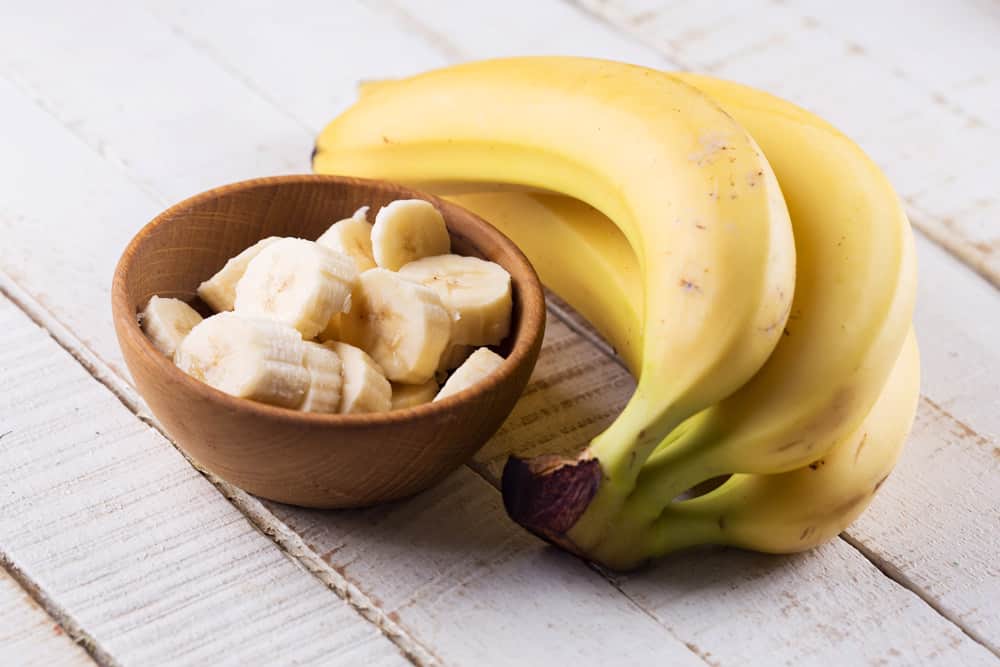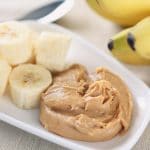Banana Facts:

Nutrition Facts
Serving Size 1 Medium
Servings Per Container 1
Amount Per Serving
Calories 105
Calories from Fat 0
% Daily Value*
Total Fat 0g
0%
Saturated Fat 0g
0%
Trans Fat 0g
Cholesterol 0mg
0%
Sodium 1mg
0%
Total Carbohydrate 27g
9%
Dietary Fiber 3g
12%
Sugars 14g
Protein 1g
Vitamin A
2%
Vitamin C
17%
Calcium
1%
Iron
2%
Vitamin E
1%
Vitamin K
1%
Thiamin
2%
Riboflavin
5%
Niacin
4%
Vitamin B6
22%
Folate
6%
Pantothenic Acid
4%
Magnesium
8%
Phosphorus
3%
Potassium
12%
Zinc
1%
Copper
5%
Manganese
16%
Selenium
2%
*Percent Daily Values are based on a 2,000 calorie diet. Your daily values may be higher or lower depending on your calorie needs.
PQ (Protein Quality) x PDCAAS (Protein Digestibility Corrected Amino Acid Score) - 47
Additional Contents
Potential Health Benefits
- promote normal blood pressure
- support heart function
- increase digestive bifidobacteria
- support ATP production
- help lower cholesterol
- anti-oxidant boost
Potential Athletic Benefits
- Promote mental alertness and longevity of focus.
- Fight against muscle cramps.
- Good source of energy from vitamin C and vitamin B6 which are common deficiencies among athletes.
- Complex carbohydrate source for pre/post-workout energy.
Glycemic Index Rank
53 out of 100
| Rank | Value |
|---|---|
| Low Glycemic | less than 55 |
Food Sensitivity Rank
1 to 1 ratio
| Rank | Value |
|---|---|
| Low for Fructose Sensitivity | less than 1 (fructose to glucose ratio) |
Bananas are one of natures most health promoting fruits. They support healthy digestive bacteria that aid in blood barrier nutrient absorption. In addition, given their high vitamin C, vitamin B6, and potassium levels, they are viewed as an essential daily food for any individual. This is why it makes them the most popular fruit in the U.S., not to mention their savory flavor.

98kcal/serving

509kcal/serving

Bifidobacteria
Live organisms present in the digestive tract which are responsible for the breakdown of foodstuffs. These organisms are a blessing in disguise. We cannot physically tell they are there, but they are greatly responsible for the amount of nutrients we can absorb from the food we eat. These organisms contribute to overall digestive health which is also responsible for approximately 70% of our immune system function.
Sources include: USDA
***All-Body Fitness takes no responsibility for the accuracy of the information provided above. Please contact a medical doctor or a registered dietitian for nutrition advice.


